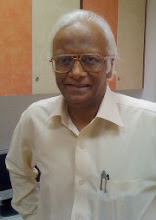DIPIKA RATHI

In Olympics and Oscars, there’s no reservation! Just imagine a guy who came 39th in the marathon walks away with the gold medal because he is from Buffalo City. Or a girl in bikini laughs her way to Oscars because she is from Saudi.
I am a woman and proud to be so. I would like to command respect for what I am and what I would accomplish. I loathe to be on crutches or lifted to a pedestal because of my gender.
Nevertheless, there is no doubt that reservation for women in Parliament would usher in a revolution. It would sweep the discredited male politicians into the dustbin of history where they truly belong. Asking for quotas is no bakhshish but their due denied to them for over 60 long years. The manometer of any civilization in history is the place of women in society; where women were held in high esteem, the society has known peace and prosperity.
ASHIRBAD RAHA

It goes without saying that in a socio-cultural milieu such as in India, where women are crisis managers at home, the Bill would pave the way an equitable development of society. It gives the Indian polity a chance to be fair and equitable because without fairness and equity to women we cannot expect the same in its political system. Women will give a human face to government and moderate taxation of the people.
+of+IMG_1278.jpg)
SANDEEP SHRIVASTWA
Women transcending from the bread-maker to policy-maker, from holding rolling-pins to holding the destiny of the nation would help fine-tune our national policies and governance. Women’s reservation is set to alter the socio-political landscape of India. Ignoring one-half of our population could be a disaster for our democracy.
TAUSIF ALAM

Women in saddle will make a difference to governance because health care and development will get their due place. At panchayats women are doing a great job. In Madurai district of Tamilnadu, a brave woman was elected as panchayat president on the promise of bringing portable water to her village. The day she kept her promise, the water mafia shot her dead. Her name was Parvathy, and her heroism ought to be recorded in the annals of modern history. No one ever thought of honouring her with a bravery award, let alone Bharat Ratna. This in a country where even a rapist cop like Rathore gets breavery awards.
PRIYANKA KUMARI

The pertinent question is how much empowerment will the Bill bring to women. It might promote women participation which is not the same as empowerment. The character of Indian politics being manipulative, the bill may be reduced to a charade. The Bill will certainly widen the gap between high society women and the rest of women in India.
SNEHA SALONI

The 33% representation would lead to gender equality in parliament. The fear that deserving candidates would be dropped in favour of women some of whom may be a pale shadow of their husbands is slightly far-fetched. Is the Bill a social equiliser or a vote bank gimmick depends on its implementation?
NEHA JAIN

I am against the reservation Bill per se. It may be the most consequential act of lawmaking since Independence. The “quota within a quota” only partly and unhelpfully flags this issue.
PURBA DAS

I don’t think the Bill has any social relevance. It’s unlikely to impact our political system in any positive way. Caliber and not gender should be the criteria for running a country.
VANI MANOCHA

Widely criticized as a fallacy, the Bill will boost the morale of women – who have the capability but not the opportunity to prove themselves. The Bill is going to add fuel to the fire, yet it is hailed as a significant step for mankind in the art of governance.
SHAILY BHUSRI

This is the world’s largest mobilisation of women in public life. The experience of women's reservation in panchayats has been encouraging. Let a million women come forward – some to lead and others to follow. Onward brave Indian women!










+of+IMG_1278.jpg)








